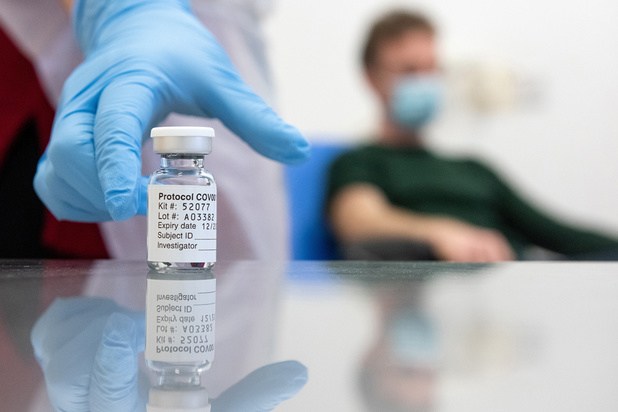The European Medicines Agency (EMA) is due to issue an updated opinion on AstraZeneca's vaccine this Thursday.
In recent days, several countries have suspended the use of the anti-Covid vaccine produced by the Anglo-Swedish pharmaceutical company following cases of thrombosis. The EMA reiterated on Tuesday that there was no indication that the vaccines caused the blood clots.
Austria announced earlier this month that it had stopped administering a batch of vaccines produced by AstraZeneca, after a 49-year-old nurse died of "severe clotting disorders" a few days after receiving the vaccine.
Related News
- AstraZeneca: Belgium wants Europe's growing vaccine surplus
- Blood clots: What are they and why are they a problem?
- WHO recommends AstraZeneca vaccination 'for the time being'
Denmark suspended the use of all of its AstraZeneca vaccines a few days later "after reports of serious blood clots" in vaccinated people.
In a preliminary investigation, the European Medicines Agency (EMA) nevertheless stressed that there was no link between AstraZeneca's vaccine and the death in Austria.
In the days that followed, Iceland and Norway also suspended injections of the vaccine "as a precaution". Several cases of blood clots in vaccinated adults were again reported, but with no proven link.
Bulgaria then followed the Nordic countries and temporarily suspended the Anglo-Swedish vaccine, as did Ireland and the Netherlands, France, Germany, Spain, Italy, Portugal, Luxembourg, Slovenia and Lithuania.
The EMA said on Tuesday that it was inevitable that serious incidents or illnesses would occur after vaccination. The appearance of blood clots is not a priori more frequent among vaccinated people than in the rest of the population, EMA Director Emer Cooke stressed. However, the Pharmacovigilance Risk Assessment Committee (PRAC) is assessing the reported cases of thrombosis to determine whether the reported incidents are coincidental or a real side effect.
In Belgium, 11 cases of thromboembolic events and other blood clot-related conditions after an injection of AstraZeneca's vaccine have been referred to the FAMHP, but vaccination is proceeding as planned.
According to the Vaccination Task Force, the benefits of AstraZeneca's vaccine in preventing Covid-19 outweigh the risks. Furthermore, there is no evidence of an increased incidence of thromboembolic events with AstraZeneca's vaccine, according to experts consulted by the Higher Health Council (HSC).
The World Health Organisation (WHO) also said on Wednesday that vaccination with AstraZeneca's anti-Covid serum should continue "for the time being".
The Brussels Times

